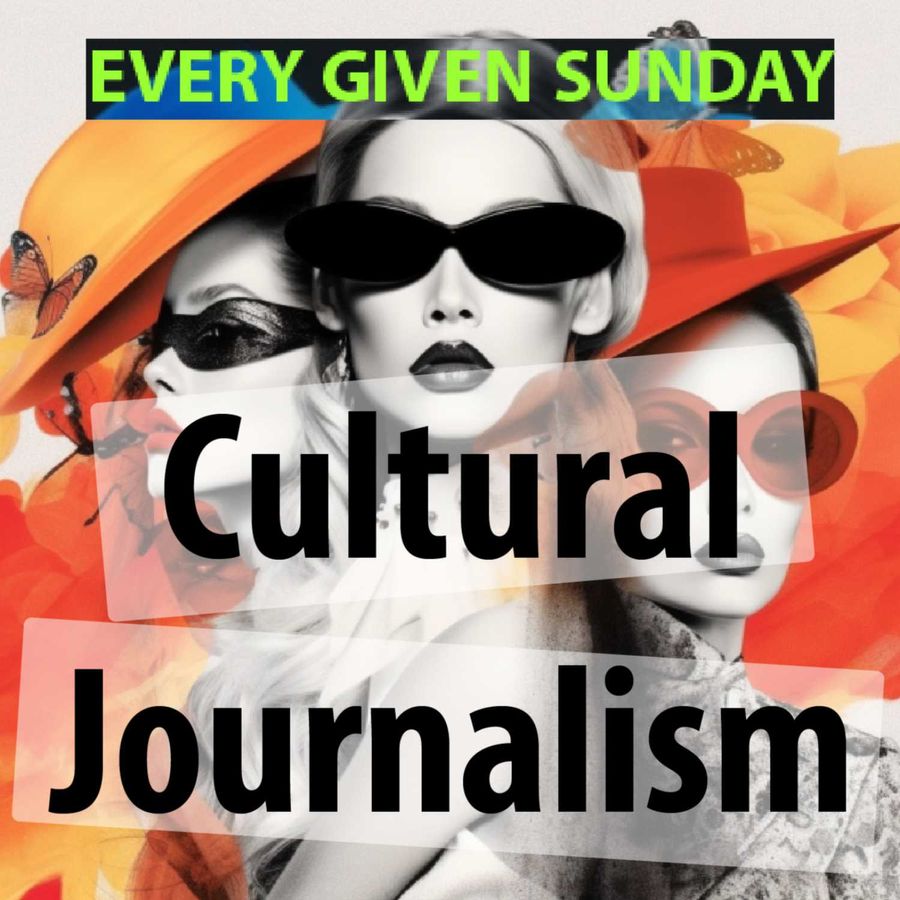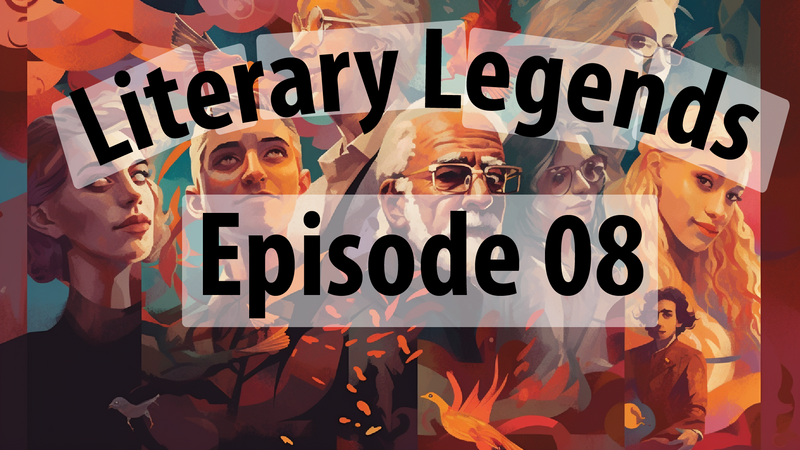Literary Legends: Challenging the Canon and the Cult of Authorship
In literature, specific figures have achieved an almost mythical status; their works are canonized as indispensable treasures of human creativity. Moreover, these "literary legends" are often revered as untouchable authorities, their every word held in high esteem. However, as lovers of intellectual discourse, we must critically examine this veneration and question the unquestionable. In this article, we shall embark on an unapologetic pursuit of academic rigour, challenging conventional wisdom and reevaluating the notion of literary greatness.
The Canon: An Arbitrary Selection Process
Establishing a literary canon, the collection of works deemed to possess exceptional academic merit is a process fraught with subjectivity and historical contingencies. What makes a particular work or author worthy of inclusion while others are relegated to obscurity? The answer lies not solely in intrinsic literary qualities but in a complex web of social, cultural, and political forces.
Historically, the canon has been heavily biased towards the works of white male authors from Western Europe and North America. This exclusionary bias reflects the power dynamics and cultural hegemony prevalent in these regions. Moreover, it disregards the vibrant literary traditions of other cultures and perpetuates a Eurocentric worldview.
The elevation of specific authors to the status of literary legends often obscures that literary greatness is not solely determined by individual genius but is deeply intertwined with the socio-cultural milieu of a given period. Although it is undeniably talented, writers like Shakespeare or Dickens were also products of their time and beneficiaries of social conditions that allowed their works to flourish. Their inclusion in the canon should not lead us to overlook the contributions of countless marginalized voices and underrepresented communities whose stories have been marginalized or silenced.

The Cult of Authorship: Questioning the Mythical Status
Literary legends are celebrated for their works band are often treated as icons of intellectual prowess, wisdom, and moral authority. This cult of authorship perpetuates the idea that the artist possesses a unique insight into the human condition, and their pronouncements are to be revered without question. However, this view obscures the complexity and fallibility inherent in the creative process.
Like all individuals, authors are subject to the limitations of their perspectives and the biases ingrained in their societies. They are not infallible oracles but fallible human beings who sometimes succumb to the same prejudices and blind spots as the rest of us. To unthinkingly accept their every word as sacred is to forgo our critical faculties and forfeit our responsibility to engage in thoughtful, independent analysis.
Moreover, the cult of authorship prioritizes individual genius over artistic creation's collaborative and collective nature. Like any art form; literature is not the only product of a singular mind. Still, it emerges from a web of influences, interactions, and cultural currents. To focus solely on the author is to neglect the myriad factors contributing to a work's production and interpretation.
The Myth of Timelessness: Literature as a Dynamic, Evolving Entity
One of the most persistent myths surrounding literary legends is the notion of timelessness—the belief that their works possess an enduring quality that transcends historical context. Yet, while specific themes and insights may resonate across generations, it is crucial to recognize that literature is a product of its time and reflects the social, political, and intellectual climate in which it is conceived.
As our understanding of history, society, and human nature evolves, so does our interpretation of literary works. In light of new perspectives and knowledge, what was once considered groundbreaking and profound may be reevaluated and even challenged. The richness of literature lies in its capacity to provoke dialogue and generate diverse interpretations, allowing for an ongoing engagement between the past and present.
Cameron's Thoughts on Literary Legends
When it comes to literary legends we often think of the heavy hitters like Hemingway, Dickens, Tolstoy, or Dumas. What makes a literary legend? There have been millions of books written and some managed to last the test of time and are still read today while others have disappeared into the sands of time. Literature usually has something to say beyond the story on the page. It’s what usually separates literature from genre. Literature transcends the page to become something else. It can often shift how we see the world. The story of the Dust Bowl and the Great Depression was often filmed but it was The Grapes of Wrath that lent the event power and understanding. The subsequent film starring Henry Fonda only amplified the legend and story of the economic refugees of the 1930s. Literature as a way of telling a story and putting a face on a problem in a way that isn’t often matched by other mediums of storytelling; it is merely copied. Film and Television often only give us the essential pieces of a story whereas a book can give us all the context and subtly that is often loss on in film or TV.
Part of what makes a literary legend is the fact that a singular intellect can take in an event, a time, or an idea and then tell a complete story with that information. Writing, unlike many other forms of creation, is lonely and bereft of the collaboration of film, TV, and theater. The writer is a slave to the blank page and must-needs fill it with the story that is bubbling inside of them. No one else can really bring out the story in the same way that they can bring it out.
I have picked out a list of more recent writers that I think will have the same impact and will be studied for centuries.
Truman Capote
In his seminal work, In Cold Blood, he invented a new kind of writing: creative nonfiction where the tools of the novel are applied to true events.
Jack Kerouac
It should be noted first and foremost that Capote was not a fan of Kerouac and called his writing “typing.” That is part of its charm. Kerouac perfected the stream of consciousness form. He was a beat writer and his rebelliousness against the statism of the 1950s made the 1960s possible. He was a cantankerous man with shocking opinions and some terrible habits but his literary contribution is not to be underestimated.
Hunter S. Thompson
Historian of 1960s counter-culture, Hunter S. Thompson was a younger contemporary of Kerouac and Capote and picked up where Kerouac left off by taking us into the drug culture of California in the 1960s. A strange fellow, he committed suicide in 2002 at his mountain cabin in Colorado. His greatest work, “Fear and Loathing in Las Vegas” continues to be popular. The film version, starring Johnny Depp and directed by Jim Jarmusch was a box office flop. That didn’t stop Depp from starring in two more movies about the gonzo journalist. Hunter S. Thompson is best remember for his books but he was quite a popular writer in magazines of his day. He wrote for all the best publications and his influence is still being felt.
Amy Tan
Dan mentioned that often literary canon tilts toward white men from Europe and the Americas. However, there is a woman who really stands out as a master of her craft in the late 20th century. She is my favorite author behind Jhumpa Lahiri. Amy Tan was one of the first to reveal the experiences of Asian-Americans (particularly southeast asian cultures) in her book “The Joy Luck Club” and she did important work in showing a different side of Asian communities that rejected the model minority myth and humanized them.
Gore Vidal
There is one piece of advice from Gore Vidal I always follow, “Never miss as opportunity to have sex or appear on television.” As America’s historian, Vidal wrote books that changed our perception of ourselves. The work stands in contrast to another person on our list, James A. Michener who created the myth of America. Vidal was known for being a fiery, classical liberal but it is in his writings about this country that his politics become more circumspect.
David McCullough
As America’s biographer, David McCullough’s books on the Founding Fathers of the republican are all essential reading. I read his book on John Adams when I was in high school and while it was long, thick, and complex it was also definitive. He spent his career analyzing these singular men in American history and that’s what makes him America’s biographer.
James Michener
The fiction of America’s mythologist, James A. Michener is part of the story we tell ourselves about our country. Michener is probably the least known writer on this list today. His books are not often read anymore. I can’t remember the last time I saw someone read his book, Texas or saw someone ploughing their way through his thick tombs. However, he deservers a place on this list because he created much of the American mythology that we now cling to in these difficult times.
Louis L’Amour
French literature is an entire discussion in its own right but Louis L’Amour is a legend because of his novels about the American West. He spent much of his youth on dude ranches and he used those experiences to recreate the mythical American West. He was a prolific writer and while his work might be considered genre at best, I think his ability to show the West in all its complex relationships and brutality raises his work to another level.
Conclusion: Rethinking Literary Legends
In pursuing intellectual rigour, we must approach the concept of literary legends with a critical eye. The canon should be continually reevaluated, expanded, and diversified to include a broader range of voices and perspectives. The cult of authorship should be dismantled, and authors should be seen as fallible individuals rather than infallible arbiters of truth. Finally, we must recognize that literature is a dynamic and evolving entity, open to reinterpretation and reshaping as our understanding of the world progresses.
By challenging conventional wisdom and engaging in a thoughtful, critical examination of literary legends, we can embrace a more inclusive and intellectually rigorous approach to studying and appreciating literature. Let us celebrate the richness and diversity of human creativity, valuing the well-established icons and lesser-known voices that have been overlooked or silenced.


